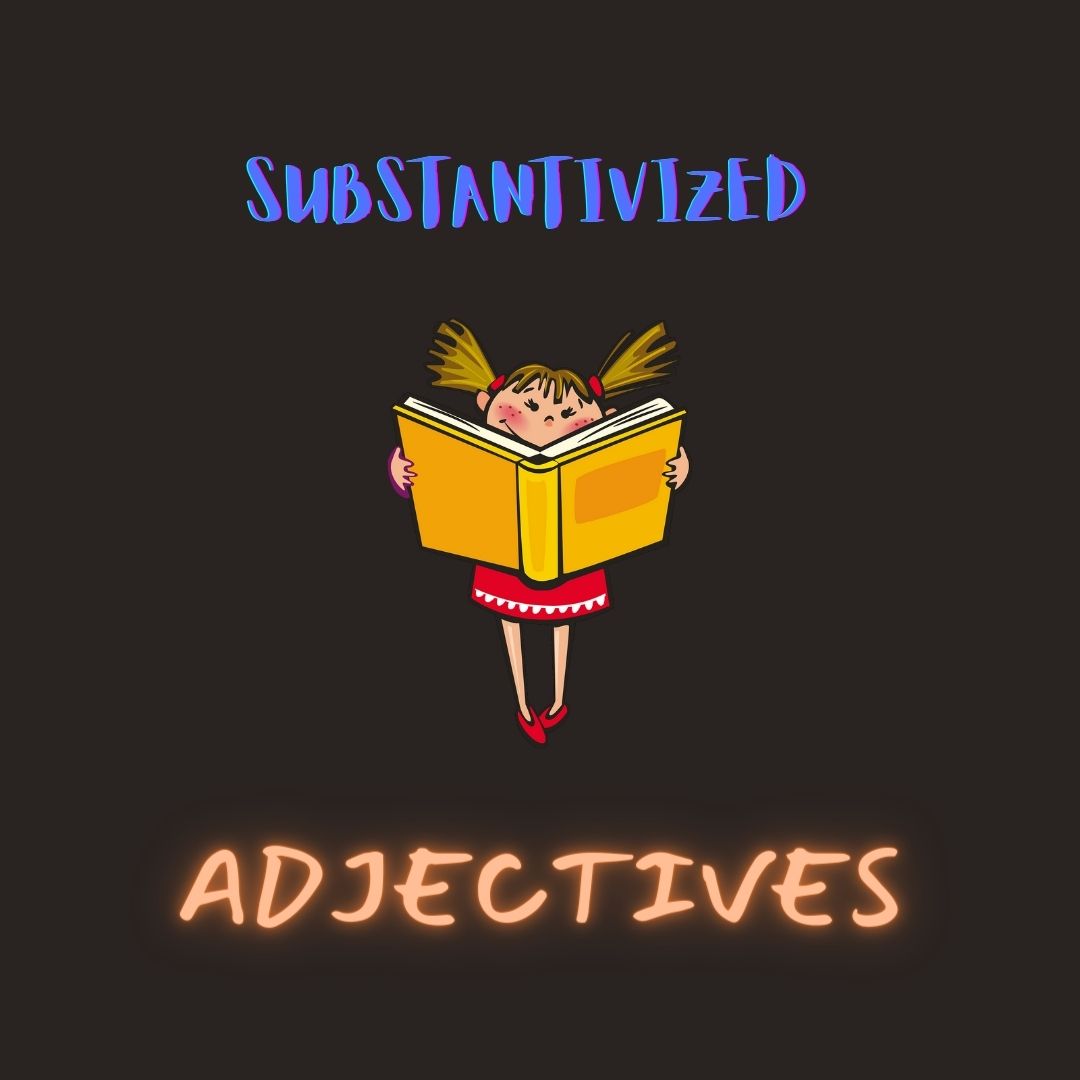Substantivized Adjectives

Substantivized Adjectives
Some adjectives can be turned into nouns and used as nouns.
They are called substantivized adjectives.
Substantivized adjectives, also known as nominalized adjectives,
They are adjectives that have been turned into nouns by adding suffixes, such as: -ness, -ity, or -ism.
This changes the part of speech of the word from an adjective to a noun.
Some examples of substantivized adjectives:
Happiness (from the adjective happy)
Equality (from the adjective equal)
Politeness (from the adjective polite)
Patriotism (from the adjective patriotic)
Optimism (from the adjective optimistic)
Modernity (from the adjective modern)
In terms of grammar, substantivized adjectives can be used in a variety of ways.
They can function as:
the subject of a sentence,
the object of a verb,
the object of a preposition.
They can also be used in compound nouns, such as: happiness index or optimism survey.
Additionally, they can be modified by other adjectives, such as great happiness or unbridled patriotism.
Not all adjectives can be turned into nouns in this way, and the suffix used to form the noun can vary depending on the adjective:
For example, happy becomes happiness with the -ness suffix, while equal becomes equality with the -ity suffix.
Substantivized adjectives in plural form:
Here are some examples of substantivized adjectives in their plural form that denote a group of people:
The Rich (referring to wealthy people)
The Homeless (referring to people without homes)
The Elderly (referring to older people)
The Young (referring to young people)
The Disabled (referring to people with disabilities)
The Educated (referring to people with a high level of education)
The Unemployed (referring to people without a job)
The Oppressed (referring to people who are unjustly treated)
Adjectives denoting nationalities:
The plural form is often used to refer to the group as a whole, rather than individual members.
In English, it is possible to turn adjectives denoting nationalities into nouns by adding an article (such as the or a/an)
and using them to refer to a group of people.
This process is called substantivization of adjectives or nominalization .
For example: the adjective French can be turned into a noun by adding an article and referring to a group of people:
The French are known for their love of wine and cheese.
In this sentence, French is being used as a noun to refer to the people of France.
Some more examples:
The Japanese are famous for their technology.
The Irish are known for their hospitality.
The British have a reputation for being reserved.
When the adjective is turned into a noun in this way, it usually refers to the people of a particular nationality
as a whole, rather than individual people.
Also, the noun form of an adjective denoting nationality is usually capitalised, while the adjective form is not.
Adjectives denoting nationalities that end in -ian or –an can be turned into nouns in the same way and by adding -s ending.
For example: Singular/Plural
a Colombian/the Colombians
a Canadian/the Canadians
a Jordanian/the Jordanians
When these adjectives are used as nouns, they refer to the people of a particular nationality as a group.
Similarly, adjectives denoting nationalities that end in -ish, -ch, and other endings can also be turned into nouns.
For example:
Singular/Plural:
a Danish/the Danes
a Welsh/the Welsh
a Finnish /the Finns
Note: that, in some cases, the plural form of an adjective denoting nationality is the same as the singular form.
For example:
Singular/Plural:
a Chinese/the Chinese
a Portuguese/the Portuguese
In these cases, the context of the sentence usually makes it clear whether the adjective is being used as a singular or plural noun.
Here are some examples of adjectives denoting nationalities can be used as nouns to refer to men and groups of men:
a Dutchman: This is used as a noun to refer to a single man from the Netherlands.
For example: Vincent van Gogh was a famous Dutchman.
Dutchmen: This is used as a plural noun to refer to a group of men from the Netherlands.
For example: the Dutchmen celebrated their victory in the soccer game.
The plural form Dutchmen is also becoming less commonly used in favour of gender-neutral terms like the Dutch or Dutch people.
Speaking about the nation:
When speaking about the whole nation, we can use the words men and women to refer to the people of that nationality as a group.
The specific form of the adjective used to describe the nationality will depend on the gender of the people being referred to.
For example, if we want to refer to the people of Japan as a whole, we could say: Japanese men and women.
In this example, Japanese is used as an adjective to describe the men and women of Japan.
If we want to refer to the women specifically, we could say: Japanese women.
In this case, Japanese is used as an adjective to describe the women of Japan.
If we want to refer to the men specifically, we could say: Japanese men
Again, Japanese is used as an adjective to describe the men of Japan.
The adjective used to describe the nationality does not change based on whether we are referring to men or women.
The same adjective is used for both.
Degrees of Comparison of the Adjectives
Usage of the constructions as…as, not so..as, than, by far and of
How to form the Degrees of Comparison
What is a Noun? How to use it?
What is a Pronoun? The Functions of the English pronouns.